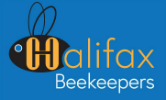Listed are below some practical tasks that you may wish to ensure that you have covered during your first season. Sessions with your mentor may be an ideal opportunity to practice some of these.
Most of these tasks are fully described in the recommended books.
- selection of personal protective equipment including gloves
- lighting and using the smoker, safety aspects
- observations at the hive entrance
- opening and re-assembling the hive
- use of the hive tool
- methodical inspection of a brood box
- use of a dummy board
- recognition of workers, drones and queens
- marking a queen (if the opportunity arises)
- recognition of worker brood, drone brood, queen cups (and perhaps queen cells)
- ecognition of eggs and larvae at various stages of development
- recognition of capped stores, uncapped stores and pollen
- method of shaking bees off a frame to inspect brood.
- recognition of healthy worker brood
- recognition of comb that requires replacement
- uses of spacing in both brood boxes and supers
- use of clearer boards
- uniting colonies
- feeding and preparing for winter
- apiary hygiene before, during and after inspection
- appropriate record keeping

